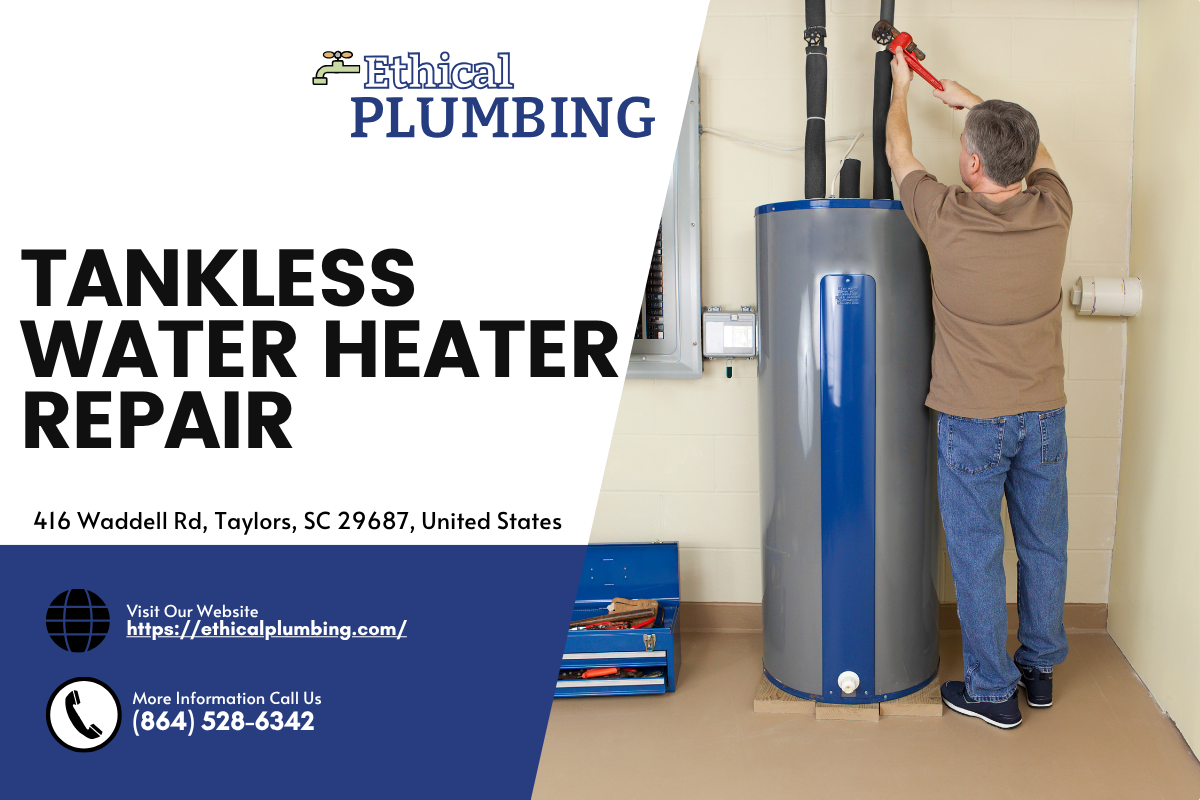
What to Expect During a Water Heater Replacement Process in Taylors

Introduction
When it comes to home improvements, few tasks generate as much anticipation—or anxiety—as replacing a water heater. Whether you're dealing with an outdated model or simply upgrading for efficiency, understanding what to expect during the water heater replacement tankless water heater repair taylors process in Taylors can make the entire experience smoother and more manageable. This comprehensive guide will walk you through everything from initial assessments to installation and ongoing maintenance, ensuring you're well-prepared for every step of the journey.
What to Expect During a Water Heater Replacement Process in Taylors
Replacing your water heater is not just about swapping out an old appliance for a new one; it’s about enhancing your home’s efficiency and comfort. Here’s what you can anticipate:
1. Initial Assessment
Before any work begins, it's essential to assess the current situation. A professional technician will examine your existing unit, looking for signs of wear, leaks, or inefficiencies that could impact your new installation.
Why is an Assessment Important?
- Identifies Issues: It reveals underlying problems that might necessitate additional repairs.
- Informs Choices: The assessment helps determine whether you need a traditional tank water heater or if a tankless option would better suit your needs.
- Safety First: Ensures all safety protocols are followed when disconnecting and removing the old unit.
2. Choosing the Right Water Heater
Once the assessment is complete, you'll need to select a new water heater. Factors influencing this choice include:
- Type: Traditional vs. tankless
- Size: Ensure it meets your household's demand
- Energy Efficiency: Look for models with high energy ratings
What Are Your Options?
| Type | Pros | Cons | |--------------------------|-----------------------------------------------|----------------------------------------| | Traditional Tank | Lower initial cost; easier installation | Takes up space; less efficient | | Tankless | Space-saving; on-demand hot water | Higher upfront cost; requires upgrades |
3. Planning the Installation Day
Schedule a time convenient for both you and the service provider. It's vital that you prepare your home by clearing the area around the existing heater.
What Should You Do Before Installation Starts?
- Move furniture and obstacles from around the heater.
- Ensure pets are secured away from work areas.
- Clear a pathway for easy access.
4. The Removal Process
On installation day, technicians will start by carefully removing your old water heater. This process typically involves:
Is This Safe?
Yes! Trained professionals follow stringent safety measures during removal to avoid leaks or electrical hazards.
5. Installing Your New Unit
With the old unit out of the way, it’s time to install your new water heater.
What’s Involved in Installation?
- Connecting plumbing lines
- Securing electrical connections (for electric heaters)
- Testing pressure levels
The technician will ensure everything is sealed correctly to prevent future leaks.
6. Post-Installation Inspection
After installation, a thorough inspection confirms that everything functions correctly.
What Happens During This Inspection?
- Checking for leaks
- Verifying correct temperature settings
- Ensuring proper ventilation
This stage guarantees your system operates safely and efficiently right from day one.
7. Understanding Your New System
Once installed, take some time with your technician to understand how to operate and maintain your new system effectively.
Why Is Familiarity Important?
Understanding how your new unit works can help you troubleshoot minor issues down the line and improve its longevity through proper maintenance practices.
Water Heater Maintenance Tips After Replacement
Maintaining your newly installed water heater is crucial for preventing future issues and extending its lifespan.
1. Regular Inspections
Schedule annual inspections with professionals who specialize in water heater service in Taylors.
Why Are Inspections Necessary?
Regular inspections can catch minor issues before they escalate into costly repairs or replacements.
2. Flushing the Tank Periodically
If you've opted for a traditional tank model, flushing it at least once a year helps remove sediment buildup that can affect performance.
How To Flush Your Water Heater:
3. Checking Anode Rods Regularly
Anode rods attract corrosive elements in water; checking them every couple of years ensures they’re doing their job properly—keeping rust at bay!
What’s The Lifespan of Anode Rods? Typically between 3–5 years depending on usage and water quality—replacing them can prolong tank life significantly!
FAQs About Water Heater Replacement
Here are some frequently asked questions regarding water heater replacement processes:
1. How long does it take to replace a water heater?
Typically, replacement takes about 2–6 hours depending on complexity but can vary based on conditions like accessibility or required modifications.
2. Will I need any permits for installation?
Yes! Local regulations often require permits for installations—your technician should handle this aspect as part of their service package!
3. Can I replace my own water heater?
While DIY projects may sound appealing, hiring professionals ensures safety compliance and correct installation—saving potential headaches later!
4. What are common signs that my water heater needs replacing?
Look out for leaks, inconsistent temperatures, strange noises (like popping), or age over 10 years—all strong indicators it's time for an upgrade!
5. How often should I have my water heater serviced?
Annual servicing is recommended—this includes inspections along with necessary repairs (if applicable) ensuring optimal operation throughout its lifespan!
6. What if I want a tankless system instead?
Tankless systems are excellent options—they provide continuous hot water flow while taking up less space! Discuss this possibility during initial consultations with service providers—they’ll guide you accordingly based on needs/preferences!
Conclusion
Navigating through what to expect during a water heater replacement process in Taylors doesn’t have to be daunting when you're armed with knowledge! From understanding assessments, making informed choices about types & sizes of units available all way through planning installations correctly—the key lies in preparation & communication with trusted professionals like those specializing in water heater repair taylors services who ensure smooth transitions during these projects while keeping safety paramount! Remember also: regular maintenance helps extend lifespans dramatically so don't overlook those routine check-ups after install too! Happy heating!